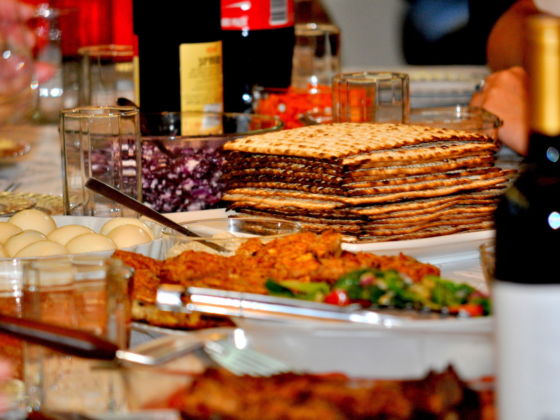GIDEON STEIN, a Jewish painter friend, invited me to attend his Seder this year. I refused (my annual Seder invitation refusal), recalling the bitter herbs of my childhood.
Our tiny apartment in the Bronx was the traditional site of our family Seder. It was the only home our Hasidic grandfather would set foot in, as our mother was only slightly less devout than himself. He was from Poland, and gave us children taffies so ancient they looked as if they made the journey with Moses across the Sinai Desert.
